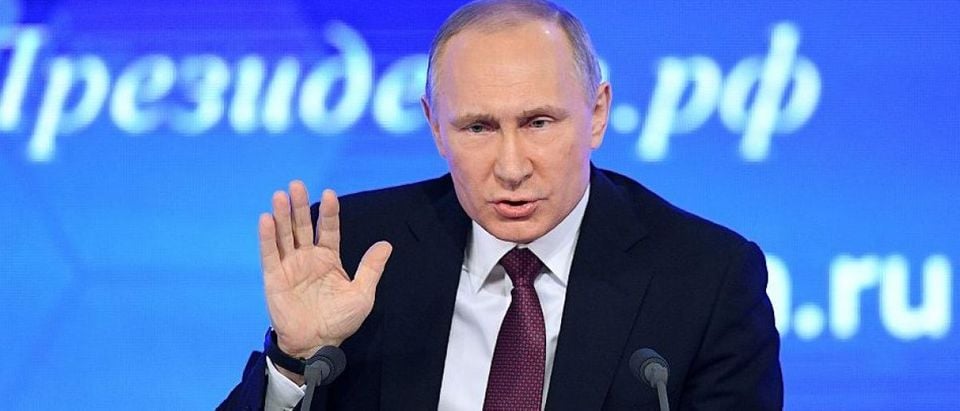Russian President Vladimir Putin directly ordered an influence campaign to undermine the United States election and help elect Donald Trump, according to a declassified report released Friday by the Office of the Director of National Intelligence.
The Central Intelligence Agency, the Federal Bureau of Investigation and the National Security Agency were the three intelligence agencies that came to these conclusion and investigated Russia’s involvement in influencing the 2016 election.
The report is not strictly about hacking efforts, but focuses broadly on a Russian influence campaign that also includes propaganda efforts, with an emphasis on the Russian-state television network RT. There is a seven page section in the 25-page report which focuses on RT.
The three agencies have high confidence that “Russia’s goals were to undermine public faith in the US democratic process, denigrate Secretary Clinton, and harm her electability and potential presidency.” The three intelligence agencies also have high confidence that “Putin and the Russian Government developed a clear preference for President-elect Trump.”
The three agencies agree that “Putin and the Russian Government aspired to help President-elect Trump’s election chances when possible by discrediting Secretary Clinton and publicly contrasting her unfavorably to him.” But while the CIA and FBI have high confidence in this assessment, the NSA has “moderate confidence.”
The three agencies concluded that Russia believed Hillary Clinton was likely to win the election, so they changed their approach to “to focus more on undermining her future presidency.”
The agencies say that the Russian General Staff Main Intelligence Directorate (GRU) gained access to the Democratic National Committee (DNC) networks and the email accounts of several Democratic Party officials and political figures. The report continues on to say that GRU disseminated hacked information through the persona Guccifer 2.0, the website DC Leaks and WikiLeaks. The report does not include specific information about the attribution to GRU.
The report from the ODNI heavily focus on public statements from Russian leaders or propaganda networks to back up their conclusion that Russia sought to undermine the 2016 election and Clinton’s chances of victory. For example, the report says, “Pro-Kremlin proxy Vladimir Zhirinovsky, leader of the nationalist Liberal Democratic Party of Russia, proclaimed just before the election that if President-elect Trump won, Russia would ‘drink champagne’ in anticipation of being able to advance its positions on Syria and Ukraine.”
The intelligence agencies assess that Putin had a preference for Trump over Clinton due to several factors, including a Trump victory leading to an international coalition against the Islamic State and comments from Clinton that Putin viewed as disparaging.
Russia also gained access into state and local electoral boards in the years before the election, according to the report, but “DHS assesses that the types of systems we observed Russian actors targeting or compromising are not involved in vote tallying.”
The report used an example of RT’s most popular English language content to show how Putin sought to influence the election. “RT’s most popular video on Secretary Clinton, ‘How 100% of the Clintons’ ‘Charity’ Went to…Themselves,’ had more than 9 million views on social media platforms. RT’s most popular English language video about the President-elect, called ‘Trump Will Not Be Permitted To Win,’ featured Assange and had 2.2 million views,” the ODNI report stated.
Outside of using traditional means of propaganda, the intelligence agencies concluded that Russia used social media “trolls” to amplify negative stories about Clinton.
The report concludes that lessons from this campaign will be used in further efforts against the United States’ and it’s allies’ election processes. It also stated that information obtained by Russia in hacking efforts against US think tanks and non-government organizations could be used “for future influence efforts as well as foreign intelligence collection on the incoming administration’s goals and plans.”


